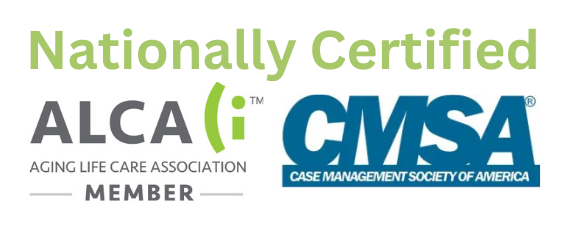Moving an elderly parent or relative into a care facility can be one of the toughest family-related decisions a person can face. A conclusive decision on when the appropriate time has come to move an aging parent out of the home can be elusive for a variety of reasons.
By understanding and acknowledging the human flaws that sometime lead to elders remaining in less-than-safe conditions, we’re better able to meet their needs and create a safe living environment for them.
Challenges surrounding the decision-making process
It goes without saying that acknowledging our parents’ mortality can be hard. We tend to see our parents as we remember them from their more vibrant days. Sometimes, grown children can have blinders on when it comes to the realities of watching their parents’ faculties begin to fail. This can lead to ongoing deferment of the difficult decisions … kicking the can down the road, so to speak. There are many organizations you can contact to help with these decisions.
Our elderly parents can be stubborn. Nobody wants to admit that they are old, frail, confused, or any number of factors that can cause a move to a care facility. Understandably, most of us would prefer to live out our final days at home in comfortable and familiar surroundings. Many people go to extraordinary lengths to avoid making the transition to a care facility.
Unfortunately, it is not always possible for us to move through our golden years at home. The challenge comes in knowing when the time has come to move. Watching for specific signs can help quantify the level of risk, and thereby take some of the decision-making burden off a person facing this decision about a parent.
Be present in their life
Talking by phone, email, or other impersonal means can exacerbate the challenge of evaluating the state of an elderly loved one, and the living conditions that may exist. It’s important to visit in person as frequently as possible to get a gage on what’s really happening in the home. People can be masters of concealing hardship or failing health, especially when a visual assessment is not possible by their loved one.
If adult children are unable to be present physically, aging life care experts, or geriatric care managers can act as extensions, to be the eyes and ears on the ground so to speak and report changes back to the adult children. Aging life care experts are a valuable resource for home safety assessments, care staff management, medication oversight, home check visits, attending physician appointments, and many other services.
There are a number of telling signs that can help to eliminate the guess-work when assessing the viability of an aging-in-place option for the home. Thorough observation is the key to making this assessment with accuracy, as missing the clues can lead to high risk-levels or even catastrophic injuries.
Telltale Signs to Look For
Confusion
Some of the signs can be mistaken for the symptoms of growing old. It’s common for elderly people to be a bit confused at times, for example. Even the soundest minds can fail, especially when there are underlying health problems.
When confusion becomes a pattern, however, or jumps from, say, misplacing eye glasses to not remembering what they are used for, then the red flags should be waving. This can also manifest in certain behaviors as seasonally inappropriate dressing, wearing the same clothing repeatedly, or frequently missing important appointments or dates.
Medical signs
As our bodies’ systems begin to fail toward the end of life, it’s not unusual for physical symptoms to present themselves. We must do our best to distinguish the normal signs of aging from the recognized signs of dementia.
Loss of orientation or balance, which can result in increased incidences of falling, are often a sure sign that an individual is no longer able to perform adequate self-care.
Keeping an eye on the medicine cabinet can also be a good indicator. If prescriptions are duplicated or expired, this shows that elderly parents or loved ones may not only be confused but may be giving up on taking care of themselves. Worse yet, they may be putting themselves at great risk by under or overdosing themselves on powerful medications.
Appearance
Neglect of personal hygiene is certainly a sign of depression, but the symptoms of depression may be difficult to distinguish from those of dementia. Observe closely if hygiene becomes an issue.
Rapid weight gain or loss may also indicate that a person has lost control of – or interest in – proper nutrition or healthy dietary habits. Watch what’s in the refrigerator.
Housekeeping
If clutter accumulates, or garbage is not being disposed of properly, particularly in the home of a person who typically kept things immaculate, this can indicate a slide into the high-risk zone.
Seniors who begin to exhibit this symptom often also lose grip on their personal finances. Bills may not be paid, or money may be spent on senseless and unnecessary items, or even scammers.
Should evidence of this be discovered, it may be necessary to seek financial power-of-attorney before real damage is done.
Some of these signs may seem obvious. Often, they are. But by the time they become blatant, they may have already been going on for some time. It’s important to watch for the early signs of these behaviors so that you can anticipate and mitigate more serious risks.
Feel free to contact our senior care management team for more information.






